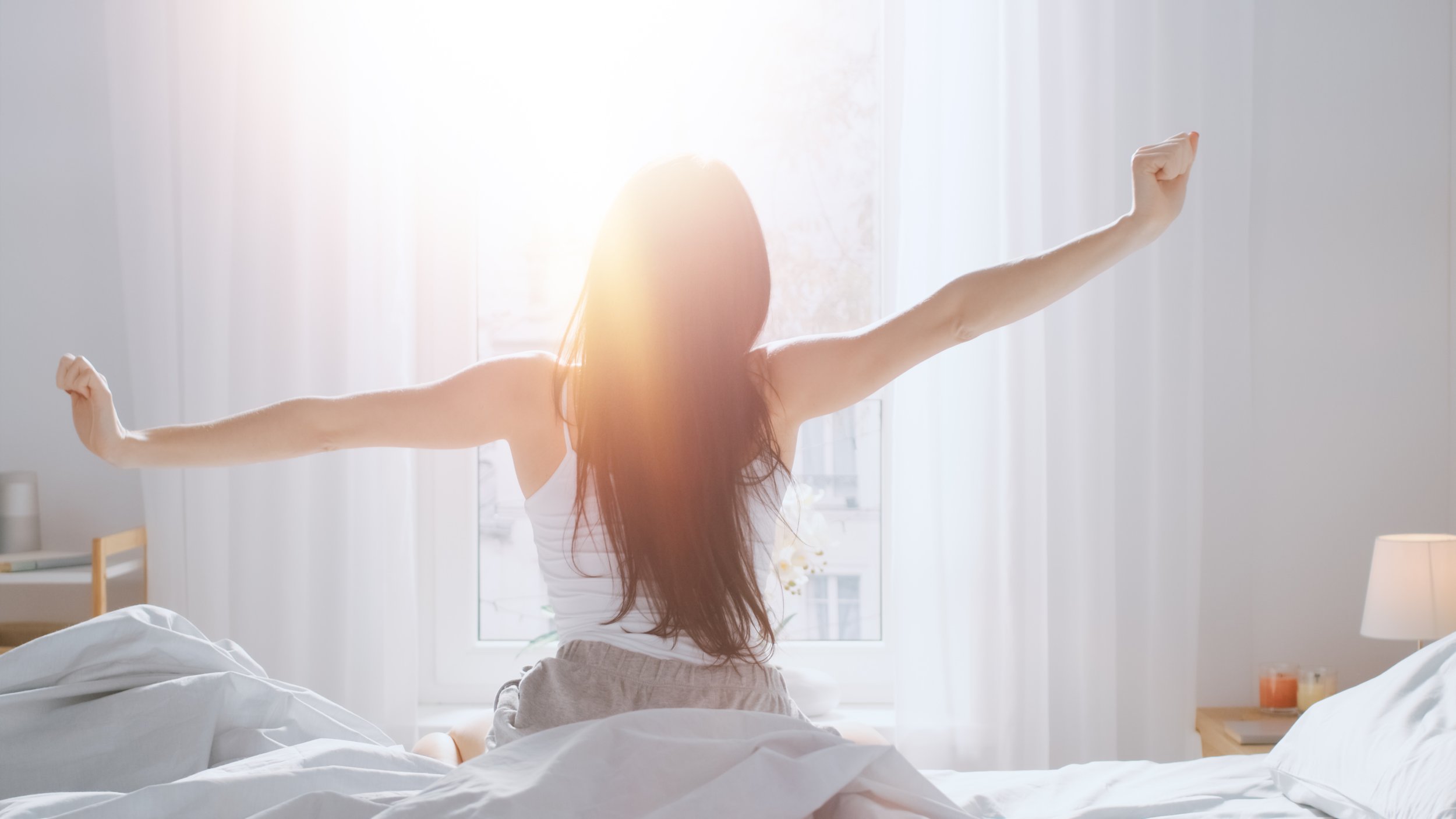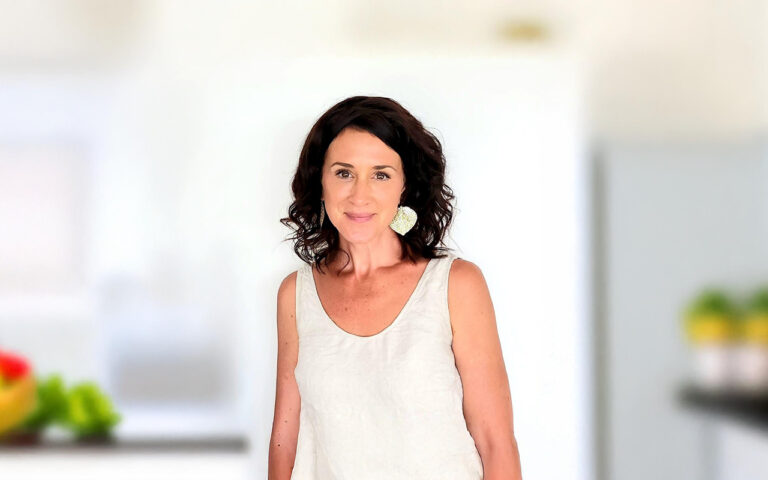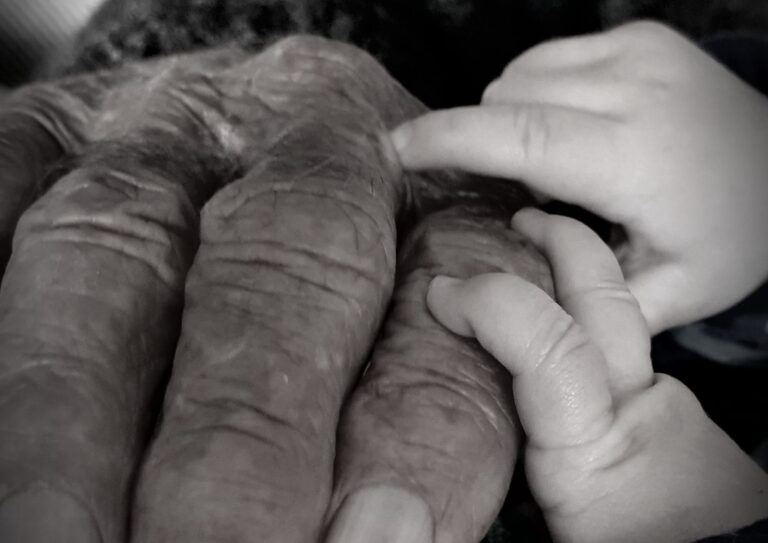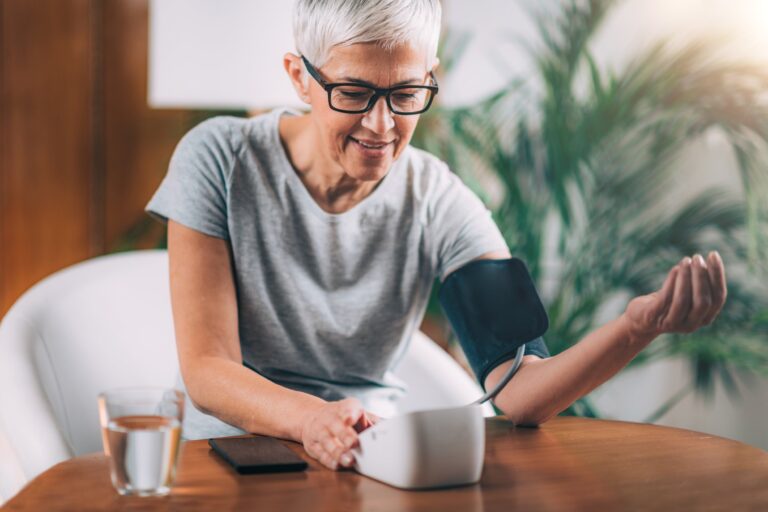
All you need to know for a better night’s sleep
In this second part of the blog post on sleep, we’ll run through our top tips for a good night’s sleep
These build on the info we discussed in the first post we shared today – so check this out if you haven’t already!!
Good sleep is generally defined as :
• usually taking less than 30 minutes to fall asleep
• broken sleep is not a common issue
• usually not waking for longer than 30 minutes during the night
• feeling reasonably refreshed the next day, with no major impairment on daytime functioning due to sleep
Sleep tips are often divided into various areas – sleep environment, exercise, temperature, light, caffeine alcohol, day naps, meditation, diet, and circadian meal timing.
We run through each of these in a bit more detail – everyone has different factors that affect their sleep, so the more tools you have to help it, the better 😉
Sleep environment:
✔️Aim to keep your bedroom for sleep (and sex) only, and avoid working there, especially on screens
This creates a positive association in your mind, where your brain links being in the bedroom with relaxing and sleeping, rather than working. When you do this, even just the act of going into the bedroom can help you feel sleepy, and signal to your body it’s time to start winding down. Our brains are powerful, and our sub conscious mind has far more effect on our bodies than we often realise!
✔️Try putting all screens out of the bedroom by a set time each night (ideally an hour before desired bed time) , and using a simple alarm clock instead – again this helps signal to your brain its time to ‘switch off’, and also removes that temptation to check social media one last time…
✔️If you tend to watch the clock when you can’t sleep, turn it around so you can’t see the time
✔️If you can’t fall asleep within 20 minutes of being in bed, get up out of bed, do some quiet activities (reading, listening to music, gentle stretches or yoga etc) and go back to bed when you feel sleepy. The same rule applies if you wake up overnight and can’t get back to sleep
This helps avoid the association of lying awake with your bedroom, which can cause sleep anxiety and make it even harder to get to sleep!
✔️If you are disturbed by noise, some people find white noise (there are many apps for this on phones), or earplugs can be helpful
Temperature:
Before and during early sleep, the blood vessels in our extremities (lower arms and legs) dilate to divert heat away from the centre of the body, dropping our body temperature slightly. This is partly due to the effect of melatonin (sleep hormone) that our brain produces to help us sleep
✔️A hot shower or bath, socks, or a non-caffeinated hot drink before bed can improve this process
✔️Keeping the bedroom cooler and bedding light can also help, especially if you suffer from hot flushes. A fan can also help, or opening a window
Exercise :
Regular exercise improves sleep quality, in particular by promoting deep sleep. Any type of exercise is helpful! The aim is to get your body moving and your heart pumping – this also helps reduce stress (which we discuss below)
✔️If you can exercise outdoors in natural light this has a double bonus – see light section next. Even a 20 minute walk in the morning can improve sleep that night
✔️Try avoid vigorous exercise just before bed, as this activates our ‘fight or flight’ nervous system and releases stress hormones such as cortisol and adrenaline – which can wake you up!
Save this for earlier in the day, and try do gentle yoga or stretching just before bed instead
Light:
Light is vital in setting our circadian rhythm (body clock) , its what our brain relies on to set our body clock and keep it running well. We covered this in part 1 of the blog post, so please check this out if you haven’t already
✔️Outdoor light is around 500x stronger than indoor light, so getting it earlier in the day helps create a healthy sleep cycle, and affects our sleep quality at night as well as our body clock
✔️Bright lights in the evening suppress melatonin production (sleep hormone) and impact negatively on our sleep – blue lights (from screens) are particularly bad for this, as they are twice as powerful in suppressing melatonin as normal light!
They basically ‘trick’ our brain into thinking its still daytime, so can delay both the onset of sleep (how long it takes to fall asleep), as well as the quality and duration of sleep (how long and well we sleep for)
✔️Try to avoid bright light 2 hours before bed if possible, and avoid screens for at least 1 hour before bed
✔️Using blue light blockers or a non blue light function if possible which may help reduce the effects of blue light on melatonin and sleep quality
✔️If you wake at night and can’t get back to sleep, try keeping any lights dim, as this also has an effect on melatonin
Caffeine:
It takes about 6 hours for the amount of caffeine in your blood to halve, meaning those mid afternoon coffees can keep you awake at bedtime!!
✔️Try limit caffeine to earlier in the day (at least 8-10 hours before bed), as well as to a maximum of 2-3 cups /day
✔️If you are sensitive to caffeine and are having trouble sleeping, try cutting it out altogether – some people do not metabolise caffeine well, and will be affected by it regardless of how many cups they drink
Day naps:
Although it can be tempting to nap during the day if you’re tired, this can alter your body’s sleep clock, so it’s best avoided
✔️If you are desperate for a nap, try limit day sleep to one nap of 30 minutes or less, ideally before mid afternoon, and aim to keep your bed time at the same time (ie don’t go to bed later due to having a nap, as this can throw our your circadian rhythm)
ALCOHOL and TOBACCO:
ANY alcohol consumed in the evening reduces our overall sleep quality, which can result in a shorter sleep, with more sleep disruptions, and poorer quality sleep. Even half a glass can have an effect!
✔️Try to limit alcohol to as little as possible, and if you do drink, ideally don’t consume it within 3 hours of bed time
✔️Nicotine is also a stimulant, ideally not smoking is best, but if you’re having trouble quitting, then try avoid smoking in the late afternoon and evening
Diet:
✔️A whole food diet high in carbohydrates, fruit and vegetables and low in saturated fat has been linked with better quality sleep in several studies
✔️Foods high in magnesium such as green leafy veges, nuts and seeds can also help
✔️Avoid high sugar foods and high fat foods close to bedtime, as these can wake us up, as well as causing symptoms such as reflux and indigestion which impact on sleep
We covered diet and sleep in more detail in another blog post, so please check this out if you’d like to know more
Salt:
✔️Try to avoid high sodium foods and stay well hydrated, especially at dinner
Salt and dehydration inhibit dilation of the vessels in your hands and feet, which is needed for good sleep
✔️High salt meals at dinner also increase the likelihood you’ll need to wake up to use the toilet overnight, which can significantly disrupt sleep!
Stress:
✔️Meditation, mindfulness, and deep breathing strategies can all be helpful for sleep, as they help us relax, and actually mimic how our brain acts in deep sleep by creating a similar ‘brain wave’ pattern
✔️Writing thoughts down before bed, and keeping a journal next to your bed to write down any middle of the night thoughts can be helpful if you struggle to switch off
✔️If you find your mind switches on as soon as your head hits the pillow, try setting aside a ‘worry time ‘ a couple of hours before bed, where you write down or talk through all the things on your mind. This helps your brain to ‘shelve’ them, taking them out of your subconscious
✔️Sleep stories are also great (there are lots of these online or on meditation apps) as these relax us and help to ‘turn off’ our thinking mind
✔️Psychology input can be up 70% effective in treating chronic insomnia and is well worth trying if you still struggle with sleep despite sleep hygiene strategies – talk to your doctor about funding options for this if it’s something you’d like to consider
Alternatively there are many online programs or apps that teach some of these strategies
Circadian eating:
Every cell in the body has a circadian rhythm, and there is research showing that when you eat, as well as what you eat, can impact on health
✔️Ideally avoid eating at least 2-3h before bed, and try to eat all your calories within a 10-12h window (this is known as time restricted eating or intermittent fasting), as this can help sleep quality, and also has benefits for other areas of health
This is a great link from the sleep foundation discussing it in more detail
https://www.sleepfoundation.org/nutrition/circadian-rhythm-fasting
If you’ve enjoyed this article and would like to know more about how to improve sleep, please check out our sleep focus module!
We also cover sleep in our full Reboot Your Health course.
In these, we discuss all about how sleep works, take a deep dive into its effect on our health and wellbeing, and teach you evidence based ways to get a better night’s sleep – as well as sleep meditations, breathing tutorials, and wind downs to help you on your way!!
REFERENCES:
https://www.sleepfoundation.org/insomnia/treatment/cognitive-behavioral-therapy-insomnia
Park, S., Oh, M., Lee, B., Kim, H., Lee, W., Lee, J., Lim, J., & Kim, J. (2015). The Effects of Alcohol on Quality of Sleep. Korean Journal of Family Medicine, 36(6), 294–299. Retrieved fromhttps://www.ncbi.nlm.nih.gov/pmc/articles/PMC4666864/
Coltrain, I., Nicholas, C., & Baker, F. (2018). Alcohol and the Sleeping Brain. Handbook of Clinical Neurology, 125, 415–431. Retrieved from https://www.ncbi.nlm.nih.gov/pmc/articles/PMC5821259/
Sleep Health Foundation. (2013). Caffeine, Food, Alcohol, Smoking and Sleep. Retrieved fromhttps://www.ncbi.nlm.nih.gov/pmc/articles/PMC2775419/
Stein, M. D., & Friedmann, P. D. (2005). Disturbed sleep and its relationship to alcohol use. Substance abuse, 26(1), 1–13.https://doi.org/10.1300/j465v26n01_01
Kaur, H., Spurling, B.C., Bollu, P.C. (2020, July). Chronic Insomnia. StatPearls Publishing. Retrieved fromhttps://www.ncbi.nlm.nih.gov/books/NBK526136/
Merck Manual Consumer Version. (n.d.). Tables: Changes in behavior to improve sleep. Retrieved December 23, 2021, fromhttps://www.merckmanuals.com/home/multimedia/table/v55322935
Cho, C. H., Yoo, H. K., Kang, S. G., Kim, L., Lee, E. I., & Lee, H. J. (2018). Impact of exposure to dim light at night on sleep in female and comparison with male subjects. Psychiatry Investigation, 15(5), 520–530.https://pubmed.ncbi.nlm.nih.gov/29551048/
Cho, C. H., Lee, H. J., Yoon, H. K., Kang, S. G., Bok, K. N., Jung, K. Y., Kim, L., & Lee, E. I. (2016). Exposure to dim artificial light at
night increases REM sleep and awakenings in humans. Chronobiology International, 33(1), 117–123.https://pubmed.ncbi.nlm.nih.gov/26654880/
Harding, E. C., Franks, N. P., & Wisden, W. (2019). The temperature dependence of sleep. Frontiers in Neuroscience, 13, 336.https://pubmed.ncbi.nlm.nih.gov/31105512/
Park, S. Y., Oh, M. K., Lee, B. S., Kim, H. G., Lee, W. J., Lee, J. H., Lim, J. T., & Kim, J. Y. (2015). The effects of alcohol on quality of sleep. Korean Journal of Family Medicine, 36(6), 294–299.https://pubmed.ncbi.nlm.nih.gov/26634095/
Spadola, C. E., Guo, N., Johnson, D. A., Sofer, T., Bertisch, S. M., Jackson, C. L., Rueschman, M., Mittleman, M. A., Wilson, J. G., & Redline, S. (2019). Evening intake of alcohol, caffeine, and nicotine: Night-to-night association with sleep duration and continuity among African Americans in the Jackson Heart Sleep Study. Sleep, 42(11), zsz136.https://pubmed.ncbi.nlm.nih.gov/31386152/
Drake, C., Roehrs, T., Shambroom, J., & Roth, T. (2013). Caffeine effects on sleep taken 0, 3, or 6 hours before going to bed. Journal of Clinical Sleep Medicine: JCSM: Official Publication of the American Academy of Sleep Medicine, 9(11), 1195–1200.https://pubmed.ncbi.nlm.nih.gov/24235903/
Wahl, S., Engelhardt, M., Schaupp, P., Lappe, C., & Ivanov, I. V. (2019). The inner clock–Blue light sets the human rhythm. Journal of Biophotonics, 12(12), Article e201900102.https://pubmed.ncbi.nlm.nih.gov/31433569/
Dolezal, B. A., Neufeld, E. V., Boland, D. M., Martin, J. L., & Cooper, C. B. (2017). Interrelationship between sleep and exercise: A systematic review. Advances in Preventive Medicine, 2017, Article 1364387.https://pubmed.ncbi.nlm.nih.gov/28458924/
Pengpid, S., & Peltzer, K. (2019). Sedentary behaviour and 12 sleep problem indicators among middle-aged and elderly adults in South Africa. International Journal of Environmental Research and Public Health, 16(8), 1422.https://pubmed.ncbi.nlm.nih.gov/31010026/
Fiorentino, L., & Martin, J. L. (2010). Awake at 4 am: Treatment of insomnia with early morning awakenings among older adults. Journal of Clinical Psychology, 66(11), 1161–1174.https://pubmed.ncbi.nlm.nih.gov/20845423/
Jerath, R., Beveridge, C., & Barnes, V. A. (2019). Self-regulation of breathing as an adjunctive treatment of insomnia. Frontiers in Psychiatry, 9, 780.https://pubmed.ncbi.nlm.nih.gov/30761030/
Rusch, H. L., Rosario, M., Levison, L. M., Olivera, A., Livingston, W. S., Wu, T., & Gill, J. M. (2019). The effect of mindfulness meditation on sleep quality: A systematic review and meta-analysis of randomized controlled trials. Annals of the New York Academy of Sciences, 1445(1), 5–16.https://pubmed.ncbi.nlm.nih.gov/30575050/
Carter, K. S., & Carter 3rd, R. (2016). Breath-based meditation: A mechanism to restore the physiological and cognitive reserves for optimal human performance. World Journal of Clinical Cases, 4(4), 99–102.https://pubmed.ncbi.nlm.nih.gov/27099859/
Norelli, S. K., Long, A., & Krepps, J. M. (2021). Relaxation techniques. In StatPearls [Internet]. StatPearls Publishing. Retrieved December 23, 2021, fromhttps://pubmed.ncbi.nlm.nih.gov/30020610/
Ebben, M. R., Yan, P., & Krieger, A. C. (2021). The effects of white noise on sleep and duration in individuals living in a high noise environment in New York City. Sleep Medicine, 83, 256–259.https://pubmed.ncbi.nlm.nih.gov/34049045/
Sakurai, N., Ohno, K., Kasai, S., Nagasaka, K., Onishi, H., & Kodama, N. (2021). Induction of relaxation by autonomous sensory meridian response. Frontiers in Behavioral Neuroscience, 15, Article 761621.https://pubmed.ncbi.nlm.nih.gov/34916914/
Krakow, B., Krakow, J., Ulibarri, V. A., & Krakow, J. (2012). Nocturnal time monitoring behavior (“clock-watching”) in patients presenting to a sleep medical center with insomnia and posttraumatic stress symptoms. The Journal of Nervous and Mental Disease, 200(9), 821–825.https://pubmed.ncbi.nlm.nih.gov/22932731/
Markwald, R. R., Iftikhar, I., & Youngstedt, S. D. (2018). Behavioral strategies, including exercise, for addressing insomnia. ACSM’s Health & Fitness Journal, 22(2), 23–29.https://pubmed.ncbi.nlm.nih.gov/31467475/



